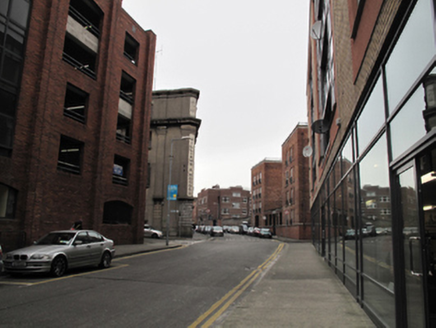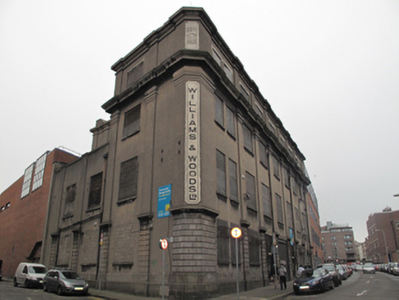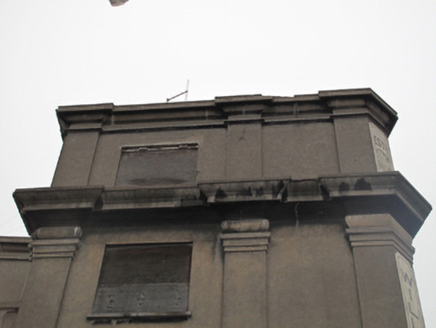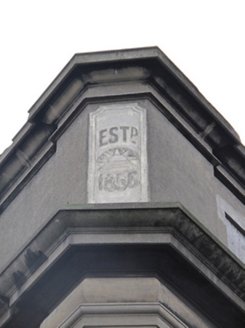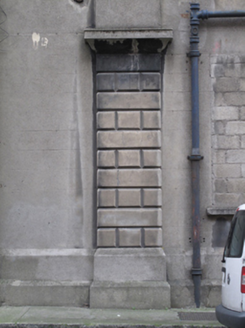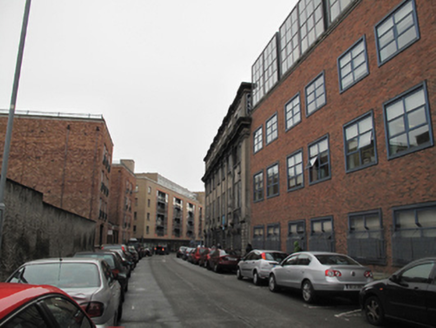Survey Data
Reg No
50010691
Rating
Regional
Categories of Special Interest
Architectural, Artistic
Previous Name
Kings Inns Record Data Ltd
Original Use
Factory
In Use As
Building misc
Date
1905 - 1945
Coordinates
315423, 234827
Date Recorded
05/12/2011
Date Updated
--/--/--
Description
Corner-sited L-plan seven-bay four-storey factory, built 1910 and extended c.1925 and 1941, with angled corner bay and two-bay two-storey extension to rear (southeast) elevation. Not currently in use. Flat roof, hidden behind rendered parapet wall having moulded deep cornice. Cast-iron rainwater goods. Rendered walls, ruled-and-lined to ground floor, with rendered engaged square-profile Doric style pilasters on channel rusticated masonry bases dividing bays, surmounted by moulded masonry deep cornice to base of first floor level. Similar moulded capitals over second floor level with moulded masonry deep cornice under third floor forming sill course to latter. Stepped ashlar granite plinth course, rendered to south-east elevation. Painted sign to angled end bay and exposed part of northwest elevation. Yellow brick visible to north elevation. Square-headed window openings having masonry sills, blocked throughout. Steel grilles to ground floor windows. Square-headed door opening to front (north-west) elevation with steel door.
Appraisal
This substantial building was designed as a jam and sweet factory by Donnelly & Moore, and constructed by G. & T. Crampton for Williams & Woods in 1910, on the site of an earlier confectionary factory established c.1856. It has since been used as a data storage facility. As a food production site, it constitutes a component part of the social and industrial history of this part of Dublin, contextualised by nearby linen and yarn warehouses and a paper manufacturing site. It has a formidable presence on the streetscape, prominently sited at the corner of Loftus Lane and Kings Inn Street, and its façade articulated by deep cornices and engaged pilasters with rusticated granite plinths. A painted sign to the angled corner bay provides contextual and artistic interest.
